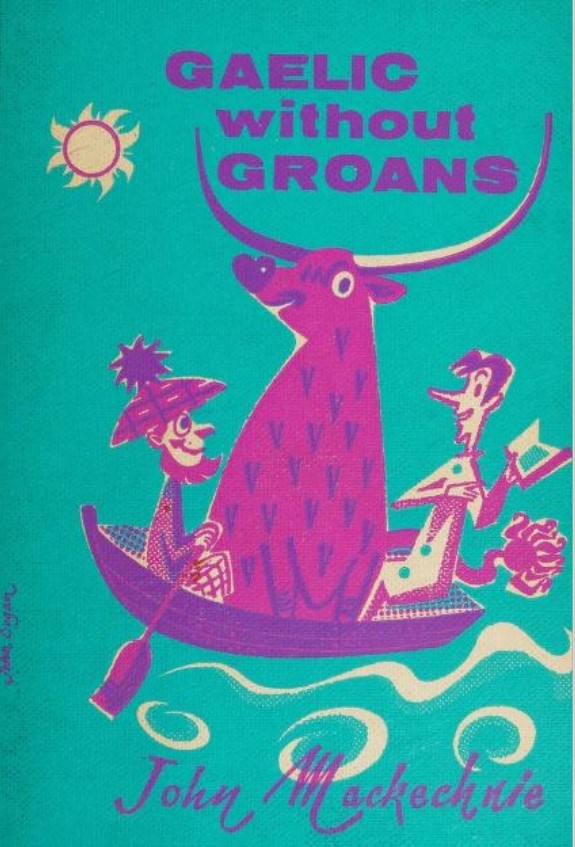John Mackechnie, Gaelic Without Groans! A Series of Twenty-Nine Lessons (1966)
Despite being a fervent and proud Scots-Australian, Robert Menzies had a complex relationship with the Gaelic language. This was because when he first ascended to federal parliament and became the Attorney General for the Commonwealth in 1934, his patriotic fondness for his native tongue backfired spectacularly. Tasked by Cabinet colleagues with the job of barring communist agitator Egon Kisch from entering the country, Menzies resorted to using the ‘Dictation Test’, in which potential migrants could be compelled to take a test in any European language and have their entry rejected for failing. Knowing that Kisch was well-versed in a variety of continental dialects, Menzies thought he could trip Kisch up by going back to his Scottish cultural roots. But this plan not only failed, it ended up being seen as denigrating the culture in the process.
As Menzies explained in a speech delivered at the opening of a Jewish school in 1960:
‘I was delighted to find that in so much of what happened outside, you preserve the ancient language, this great repository of your faith, your religious history and your literature. This is a splendid thing. I know that there are some people in the world who seem to think that those who live in a new country ought to forget about the old things. I do not believe in it for a moment. I hope that the Jewish life in Australia will always be enriched by these things. As a matter of fact, I had only one complaint about it, and that is that I am by way of being a Scot myself and the ancient language of Scotland is Gaelic, and on one occasion many years ago, Maurice Ashkanasy will remember it, a gentleman whom the government did not wish to have in Australia had rather got the better of the Minister who was concerned with it [Eric Harrison, temporary Minister for the Interior], because he was a celebrated linguist and nobody could think of a language test that he could be given that he could not fly through. And he came to me, I was the innocent inexperienced Attorney General at this time, and in a rash moment, full of Scottish patriotism and fervour, I said: “Give him a test in Gaelic”, and he failed. He went off with the aid of his lawyers to the High Court of Australia, and do you know what the High Court of Australia did? I have never forgiven it, it declared that Gaelic was not a spoken European language. And, therefore, you can understand that when I praise you, if I may with humility for the adherence to this splendid and traditional tongue, I do it with just the slightest note of envy, because if Gaelic had been in too, we could have met entirely on common ground.’
Needless to say that the Scots community in Australia was hardly impressed to be told by the High Court that theirs’s was not a European language, with the implication that this meant that they were somehow uncivilised or that their culture had effectively died out. For years afterwards it remained a topic on which people would make jokes to Menzies, and it was said to be a touchy subject for him. But he got the last laugh – abolishing the Dictation Test entirely in 1958.
You might also like...
Sign up to our newsletter
Sign up for our monthly newsletter to hear the latest news and receive information about upcoming events.


